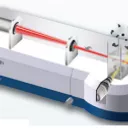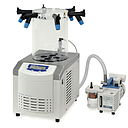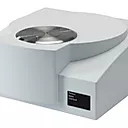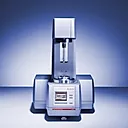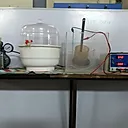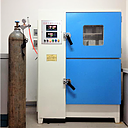Rheometer
Determining fresh properties of cement paste, mortar and concrete plays a vital role
in determining hardened properties of concrete. Earlier, fresh concrete of property
especially workability is determined by slump test. Although, subsequent improvement
in concrete technology brought about varied changes and need of revising the prediction methods.
This lead to the development and representation of fresh concrete properties in fundamental
terms through viscosity and yield stress. Rheometer is capable of measuring this fundamental
terms by application of varied shear stress, shear rate, torque or angular velocity. Rheological
measurements are performed in our laboratory by
- Anton par MCR 102 – Capable of measuring rheological parameters for all types of pastes
- eBT2 – capable for measuring rheological parameters for concrete









